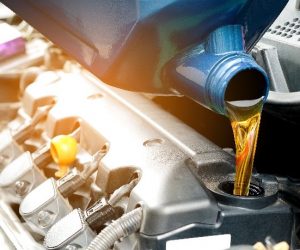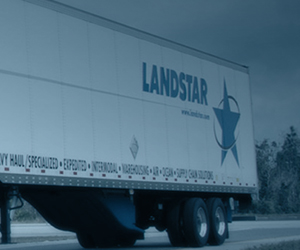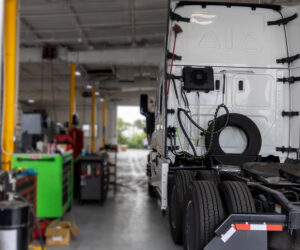Being an owner-operator, you know how important your truck is and how much you need it to be reliable, not just today but every day. You depend on your truck to make your business profitable. Every mile hauling is critical to your success. But, there are times when breakdowns occur, and the reliability is shot. We have all had a day where we are rolling down the road one minute but end up parked alongside the road and broke down the next.

When a car breaks down, it’s usually not that big of an issue; fix it alongside the road or call a tow truck. However, when a semi-truck breaks down, it usually means longer downtime, no income, and a hefty expense. It’s time to bust out the wallet. Often, this means breaking into money saved for other bills, fuel, mortgage payments, loan payments, etc. The money must come from somewhere to get your truck back on the road. Frequent service to your truck is just as important as delivering loads on time.
Many owner-operators don’t have a backup plan to fund the unexpected expenses and deal with them later IF they happen. It is not a matter of IF, but WHEN! Breakdowns do happen and will.
So, what do you do to prepare for the WHEN? Be Proactive! Set aside a maintenance fund for that rainy day.
Maintenance Expenses
Truck maintenance costs are the second-largest expense behind fuel. This is true even if your truck is completely paid off and your main truck-related expenses are maintenance and tires.
Vehicle maintenance costs are estimated to be around 5-10% of the total out-of-pocket costs. Although costs vary depending on the age, make and model of the truck, individual maintenance decisions, and the quality of the maintenance. Truck repairs are very costly; on average, the cost of labor alone can be around $130 an hour.
Truck repairs that often require the services of a professional mechanic:
- Servicing brakes.
- Checking and maintaining drive axles.
- Inspecting and maintaining wheel seals.
- Inspecting and maintaining the transmission.
- Checking the batteries.
- Checking and maintaining the exhaust system.
- Inspecting and servicing the driveline.
- Checking the suspension.
- Inspecting and maintaining the steering, clutch, and engine.
Major truck repairs can be quite costly:
- Replacing a turbo can cost $3,000-$5,000.
- Fuel Pump repair/replacement $1,000.
- Clutch $5,000-$6,000.
- Injectors can cost as much as $1,000 each.
- Drive tires $500-$600 each; there are eight drive tires.
- Steer tire $400-$500 X 2 steers.
How Much Should You Put Away for Maintenance?
When a major repair can cost up to $22,000, it is hard to determine how much you should save. We try to encourage drivers to put a set amount back each week for a maintenance fund. Setting aside somewhere between .05 and .10 a mile run is a good idea —also, do not touch that money for any reason or impulse purchases.
At Landstar, we have tried to minimize the unforeseen cost as much as possible by offering business classes that are available to BCOs free of charge, and we offer an additional escrow account. This type of escrow account is basically a maintenance fund. How it works is — that the BCO authorizes Landstar to deduct 1-10 percent of their gross revenue and put it into an additional escrow account, which they can use for repairs or unforeseen expenses. A driver — whether a new BCO or with decades of experience —who does not have a maintenance account could be one breakdown away from being out of business.
It’s always nice to know you have the money that you need to fix the problem at hand; breakdowns are stressful enough—paying for them shouldn’t be.
A Helping Hand to Lower Cost- The LCAPP Program
Landstar goes one step above the rest to help save money and time and tries to prevent future breakdowns by offering the LCAPP program. LCAPP is a unique, cost-savings program available to Landstar Business Capacity Owners (BCO), which offers discounts from the day you lease on. LCAPP frequently adds new products and services to help Landstar BCOs lower their operating costs.
How the LCAPP Program Works
BCOs are enrolled in the LCAPP once they lease on at no cost. LCAPP offers discounts on a wide variety of products and services, from tires, fuel, parts, equipment, securements, etc. For most purchases, the BCO will contact LCAPP directly. They also have “For Sale by Owner,” where a BCO can list or look for equipment they want to sell or purchase. This service is free of charge to Landstar BCOs.
Success as an owner-operator involves accurate, realistic budgeting and business alliances you can count on. Landstar’s turnover rate is less than 25%. This statistic alone speaks to the unsurpassed owner-operator experience and revenue opportunity Landstar has to offer. You can maximize the opportunity by creating your maintenance fund to ensure that your income isn’t impacted by those unforeseen breakdowns.



 The job of every commercial vehicle driver is not just to get their load to the destination in time. ...
The job of every commercial vehicle driver is not just to get their load to the destination in time. ...

